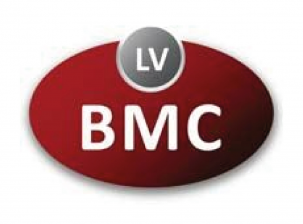
Pathogenicity of human Hepatitis C virus relying on enzymatic properties of viral RNA-dependent RNA-polymerase
Aim
Description
Chronic hepatitis C (HepC) affects 70 million people world-wide manifesting in liver fibrosis, cirrhosis and hepatocellular carcinomas. HCV circulates in quasispecies. High variability/quasispecie diversity associates with elevated ALT levels and unfavorable disease progression. Molecular mechanisms behind are not fully understood. Disease progression depends on many factors, including viral replication fitness orchestrated by nonstructural proteins. Key role is played by RNA dependent RNA polymerase/RdRp which synthesizes HCV RNA.
Study includes 32 RdRp sequences from HepC patients with abnormal and persistently normal ALT levels (submitted to Genbank). We will:
- clone RdRp cDNA for eukaryotic expression and assess expression levels;
- determine specific activity of RdRps in eukaryotic cells;
- determine activity of RdRps in vivo using capacity of polymerization products to induce expression of type I interferons;
- identify signatures associated with high RdRp activity;
- correlate RdRp activity to virus load, ALT levels and fibrosis scores in HepC patients bearing respective enzyme variants.
This will identify ‘molecular signatures´ of clinical course of chronic hepatitis C related to replication capacity of infecting virus, guiding timely introduction of therapy with directly acting antiviral drugs.
Project news
- Workshop Molecular virology and molecular oncology
Everyone at RSU is invited to attend research seminar Molecular virology and molecular oncology on November 25, 2021 at 17.00 in ZOOM.
The workshop is dedicated to the study of the molecular mechanisms of oncogenesis. The results of experimental work on oncogenic viruses (hepatitis C virus, human papillomavirus, human immunodeficiency virus) as well as modern methods used in the study of immune cell cells involved in tumorigenesis will be discussed.
Application and information in English -Program
Informations posted on 24.11.2021




